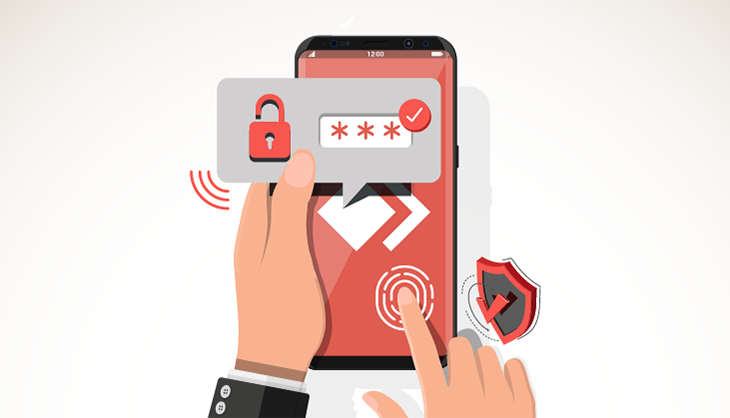Mobile Security – How to Keep Your Smartphone Safe

Why Mobile Security Is Important
These days, our phone is our entire life. From the alarm clock in the morning to contacting our entire social circle – we can easily manage our lives via our smartphone. Keeping our smartphone data secure is comparable to locking your front door – it should be your top priority to stay safe.
According to McAfee, the rise in malware over the last year is over 100%. Smartphone security becomes more critical each year. There are many reasons why you could be the victim of cybercrime, and you don’t have to be in a high-ranking position that requires handling sensitive data.
Of course, gaining access to sensitive business information is one reason hackers might target you. They could also be after your money, or maybe someone in your personal life is trying to spy on you. Either way, the methods people use to gain access to your phone are plentiful, but they aren’t impossible to combat. Here’s how to stop someone from accessing your phone remotely.
Keep Your Phone Safe
The first barrier to your data is your lock screen. You should always make sure to lock your smartphone most securely. If you have the option to unlock your phone via fingerprint, take it! Face recognition? Also a good solution! You should also change the classic number code regularly.
Password safety to your online accounts is also important, but there are many more ways to get tricked that don’t involve cracking the locks on your smartphone.
Smartphone Gone! – What Now?
Your physical device could also get stolen. But don’t panic! Many apps allow you to track your phone and see where it is. This is also helpful if you lose your smartphone. If necessary, wipe your data remotely, so if your device is gone, at least your data won’t land in the hands of a thief.
If someone in your household wants to use your smartphone and you still want to be as safe as possible, there’s also something you can do: Screen Pinning. That way, your children can play on your phone, and you can simply disallow the use of specific apps.
Recognizing Scammers Early Prevents Abuse
But don’t forget the more subtle ways scammers can gain access to your data: Getting tricked into downloading software you don’t want or allowing access to your devices. Whether it’s a scam email or a phone call, scammers could ask you to download remote access software and grant them access to your smartphone.
Remote desktop tools like AnyDesk are generally very secure, using layers of encryption and many security features, but the chances of getting tricked are still there. You should, therefore, always be informed about how to spot a scammer and how to avoid getting scammed.
Spyware can be downloaded to your smartphone in a multitude of ways. By simply clicking on a link, downloading an email attachment, or accidentally clicking on a website popup, you could install spyware without even noticing it. Let’s see how you can tell that someone is spying on you and what you can do to stop it.
How to Tell Someone Is Accessing Your Phone Remotely
Here are some signs that someone might have unauthorized access to your smartphone:
- Unknown apps are running in the background
- Your phone has an increased closing time and is slower overall
- Increased device temperature
- Decreased battery life
- Noises or voices in calls
- Inexplicable messages or popups
Individually, these behaviors can simply be the natural wear and tear of a device that is used a lot. But still, if you suspect that someone is accessing your phone via spyware, it’s better to be safe than sorry.
How to Stop Someone From Accessing Your Phone Remotely
Randomly deleting apps you don’t know could cause your device to stop working properly. See if you can locate spyware on your smartphone. The app might have the words “spy” or “track” or “trojan” in its name. If you found it, simply delete the app.
On Android, installing antivirus software can eliminate malware and prevent spyware from getting installed. Your last hope is to simply reset or reboot your device. Android phones offer Google Play Protect, which helps keep your device safe because it can scan apps even before you download them and check if they’re secure.
Make mobile security your priority – it doesn’t take much! If you follow these simple tips, your phone and data will be secure all around.
Sign up for news, tips and more